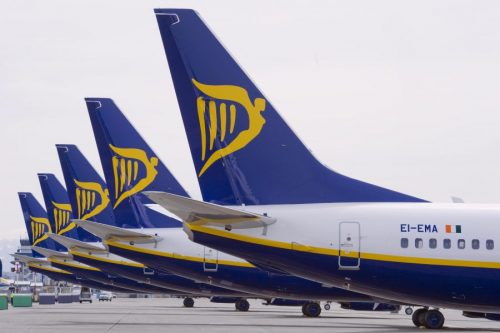Budget carrier cuts September and October capacity by almost 20%

Ryanair, Europe’s largest airline, today (August 17) announced that it would reduce its flight capacity by 20% during the months of September and October as forward bookings have notably weakened over the past 10 days, given continuing uncertainty over recent COVID case rates in some EU countries.
The carrier, which operated 46 routes from Manchester Airport and 34 from Liverpool John Lennon Airport prior to the coronavirus pandemic, confirmed that most of these cuts would be frequency reductions rather than route closures, and they will be heavily focused on those countries such as Spain, France and Sweden, where rising recent COVID case rates have led to increased travel restrictions, and Ireland which continues to impose a uniquely restrictive Green List, which imposes 14-day quarantines on visitors from most other EU countries such as Germany (16.3) and the UK (18.6), which have lower COVID case rates over the past 14 days than Ireland (22.1).
A Ryanair spokesperson said: “These capacity cuts and frequency reductions for the months of September and October are necessary given the recent weakness in forward bookings due to COVID restrictions in a number of EU countries.
“Any affected passengers in September received email notification earlier today advising them of their options.
“Similar communications will be issued to the small number of affected passengers in October later today.
“Over the past two weeks as a number of EU countries have raised travel restrictions, forward bookings, especially for business travel into September and October, have been negatively affected, and it makes sense to reduce frequencies so that we tailor our capacity to demand over the next two months.”
The spokesperson added: “Proper testing at airports, and effective tracing – as is being conducted in Germany and Italy – is the only realistic and proportionate method of supervising safe intra-EU air travel while effectively limiting the spread of the COVID-19 virus.”







